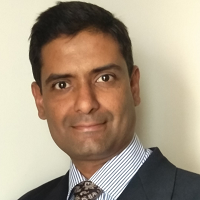World Cancer Day 2020
Healthcare experts talk about the adverse effects of cancer, its types, treatments and the initiatives taken to generate awareness among people for combating the deadly disease

Never use tobacco in any form, or if using, give it up
In our country, upto 50 per cent of all cancers in males are directly related to use of tobacco – either smoking (cigarettes, beedis, etc) or chewing (gutka, pan, etc). Everyone knows that smoking causes lung cancer and tobacco chewing causes mouth cancer. What many don’t know is that tobacco use can cause many other cancers like those of stomach, kidney, urinary bladder, uterine cervix, etc. The single most important step to prevent cancer is to never use tobacco in any form, or if using, to give it up.
There is a need to engage with women to raise awareness towards the disease and promote preventive measures

Breast cancer is one of the most feared cancers among women globally. Majority of them succumb to the disease within a few years of being diagnosed due to lack of awareness and their apprehension for examination of breasts. We at Fujifilm, believe that there is a need to engage with women to raise awareness towards the disease and promote preventive measures. Through our focussed and cutting-edge innovation, we have been working relentlessly to create affordable mammography screening solutions and provide early detection and timely medical intervention. Fujifilm’s Amulet Innovality is one such product that has made early detection of breast cancer a reality for women across the globe. Through our partnerships with healthcare providers and through our association with the Pink Ribbon Campaign, we are hoping to encourage women to be fearless in their approach to their breast health. On the account of World Cancer Day, we urge and request every woman in India to come out and take care of themselves against such dreadful diseases.

Prevention, early detection and intervention remain key in fight against cancer
While newer treatments like immunotherapy, alongside traditional therapies, give hope to sufferers, one of the most important factors in determining the outcome of any form of cancer treatment is early detection and early intervention. In general, the earlier you catch the cancer, the more treatable it is, and the better the outcome.
Each type of cancer has its own symptoms, but a key thing to look out for are unexplained changes – although these don’t necessarily mean you have cancer, they should not be ignored. Examples include a sore that doesn’t heal, a wart or mole that changes, an unusual lump anywhere in the body, a persistent cough or hoarseness, persistent indigestion or problems swallowing, changes in bowel movement or urination habits, unusual weight loss and unusual bleeding or discharge.
Tobacco and alcohol combined still cause about 35 per cent of cancer deaths globally. In the Western world, lifestyle choices related to diet and exercise are also contributing to cancer rates. But lifestyle is only one factor; globally, supporting cancer research is necessary to uncover better treatment options.
It’s also important for everyone to know their personal family history. If a person knows they have a specific type of cancer in their family, they should research or discuss the risk factors with their doctors and decide if and how regularly they should be screened.
Early detection and treatment, as well as global cancer research support is key for the best possible outcome.
We need to make a collective effort against cancer by spreading the right information

A lot of people do not yet know that a third of all cancer cases are preventable and that majority of them can be successfully treated if detected early and correctly. This lack of information at all levels is costing us millions of lives every year in the world. One way in which we can help bridge this knowledge gap is through talking about cancer, debunking common myths, spreading awareness about prevention and early detection. As a society, we need to make a collective effort against this disease by spreading the right information about risks of cancer, its prevention and the fact that early diagnosis has high chances of cure. The ‘I am and I will’ campaign is a relevant initiative by the Union for International Cancer Control (UICC). It helps people take practical steps towards changing attitudes towards cancer by removing the fear and stigma associated with it.
As a small contribution to this cause, we have initiated ‘Talk Your Heart Out’ (TYHO) campaign for people who have fought cancer as a patient or caregiver to come forward and share their thoughts, experiences and feelings to encourage and motivate others going through their journey against cancer. We organise regular TYHO meets in Bengaluru, Delhi, Hyderabad and Kolkata to encourage people to participate, communicate and support each other in their fight against cancer.

Palliative care improves the quality of life for cancer patients
People diagnosed with cancer need more than just treatment – they need to come to terms with their disease and requisite emotional and physical support. This is known as palliative care. When given in a timely manner, it can help in improving the patient’s quality of life and of their families. Palliative care in some cancer patients, when used as a supportive form of therapy in early stages, along with other treatments such as chemotherapy or radiation, is also known to prolong life. A diagnosis of cancer is accompanied with associated problems like depression, anxiety and fear. In palliative care, experts counsel support patients and make referrals to mental health professionals. There are also other things that a patient’s family may need to address including financial and legal issues or insurance. This is also an area where palliative care specialists assist and help in coordinating with relevant professionals. Last but not the least, through palliative care, cancer patients are guided to come to terms with their condition and are able to make better sense of their thoughts and fears.
- Advertisement -


